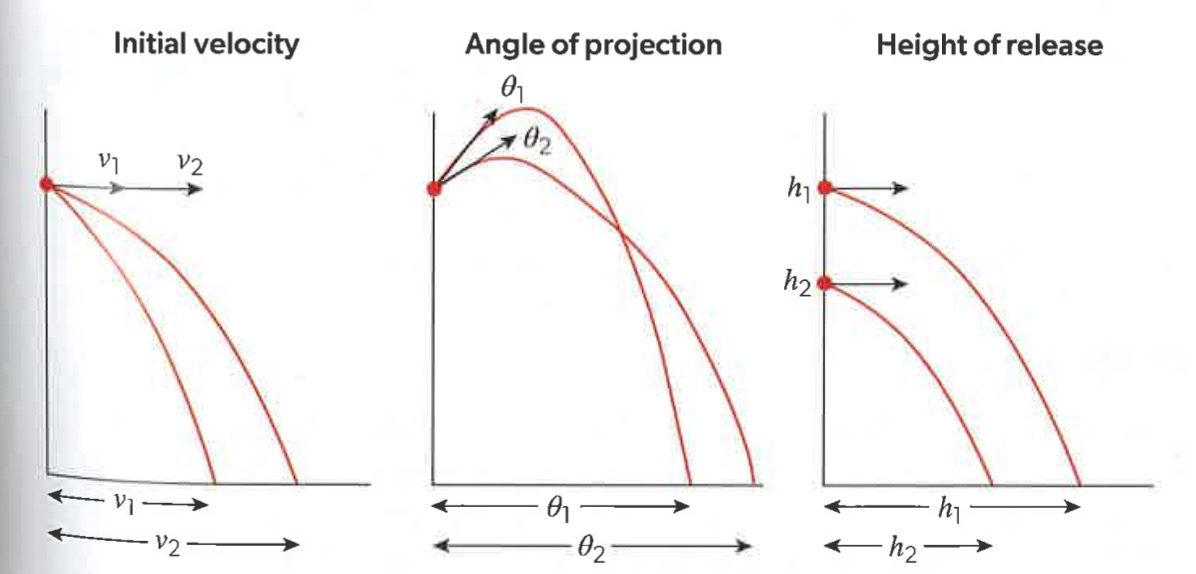Projectile Motion
1/10
There's no tags or description
Looks like no tags are added yet.
Name | Mastery | Learn | Test | Matching | Spaced | Call with Kai |
|---|
No analytics yet
Send a link to your students to track their progress
11 Terms
What is a projectile?
A projectile refers to the motion of an object that has been projected into the air or dropped where the only forces acting on it are gravity and air resistance.
What happens to the horizontal component of velocity in projectile motion?
The horizontal component of velocity remains constant.
In projectile motion, what happens to the velocity?
Only the vertical component of velocity changes.
Factors that affect projectile motion
speed
angle at release
height at release
air resistance

Speed at release
Javelin: athletes sprint down the runway to build momentum, increasing the speed of their throw
Long Jump: jumpers accelerate as fast as possible before take off to transfer horizontal speed
What is the optimal release angle for a javelin throw to maximize distance?
The optimal release angle for a javelin throw is between 30-40 degrees.
What is the ideal take-off angle for a long jump?
The ideal take-off angle for a long jump is usually around 18-22 degrees.
What is the effect of changing the angle of release on projectile distance?
Different angles of release will affect the projectile's distance
30 degrees results in moderate distance
45 degrees achieves the greatest distance
60 degrees provides height but reduced horizontal distance.
How does height at release impact projectile motion for a javelin throw?
Taller athletes or those with a high release point can achieve greater distance.
What role does air resistance play in projectile motion?
Air resistance affects the motion, and athletes minimize drag through shape and position.
How do athletes maximize their height at take-off during a long jump?
Athletes aim to jump upward as they reach the take-off board to maximize height.